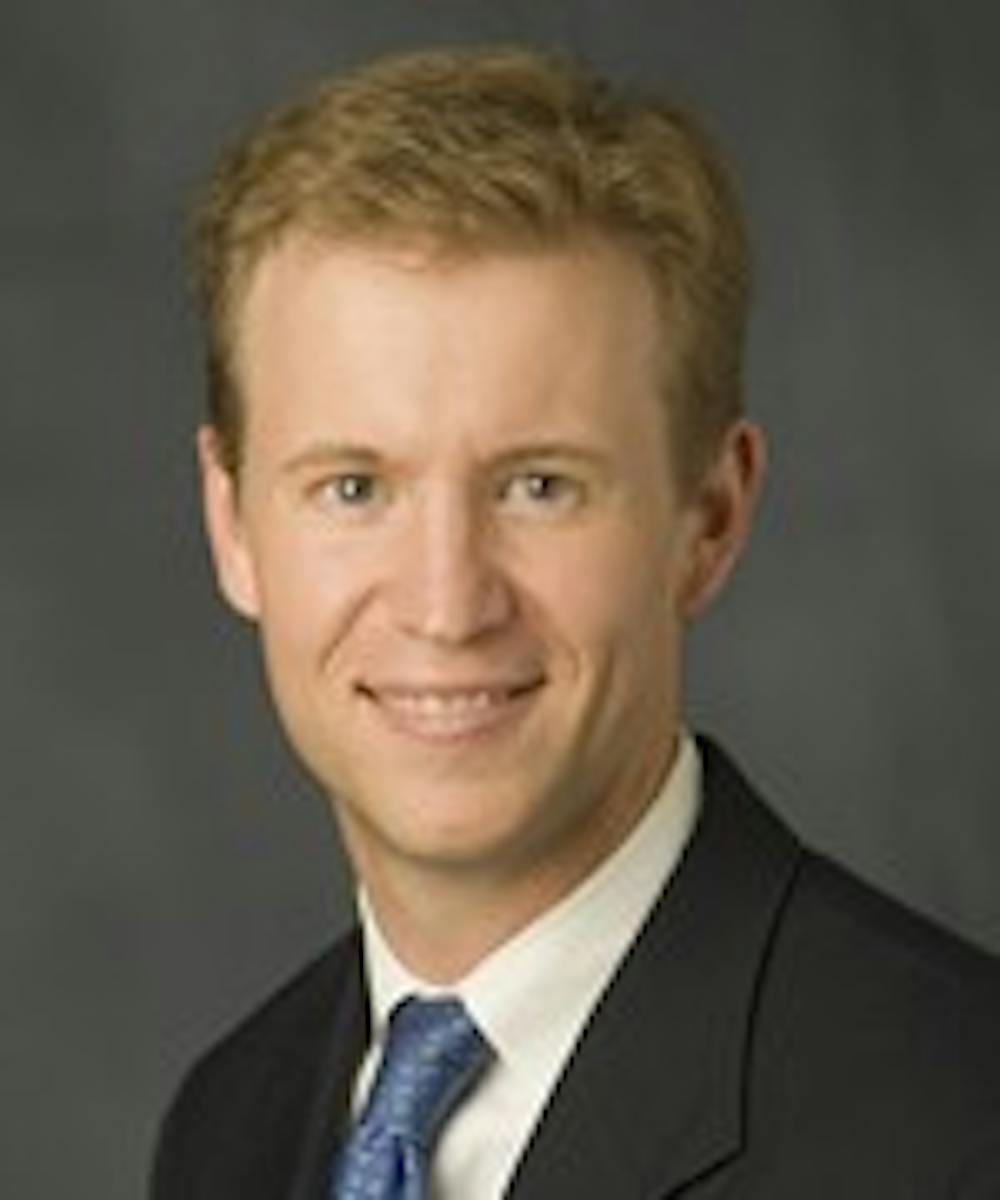The first of two candidates for the university's chaplain position spoke to about 60 students, faculty and alumni Tuesday afternoon, citing his vision for the chaplaincy as a place where all students would feel welcomed and supported.
"Wherever you may be on your journey, the Chaplain's Office will be a place of affirmation," said the Rev. Craig Kocher, associate dean and director of religious life at Duke University and a finalist to be the University of Richmond's next chaplain.
After a short introduction in Jepson Hall room 120, Kocher (pronounced COKE-er) delivered a 15-minute speech during which he detailed his personal history and outlined his understanding of the chaplaincy's role on campus.
During a 45-minute question-and-answer session that followed, he elaborated on what he wanted the chaplaincy to provide: pastoral presence and support, an understanding of the increasing role of faith in society, service as a liaison between the university and the wider Richmond community, help for students struggling to make vocational decisions, and a forum for conversations about difficult and important subjects.
Asked about how the chaplaincy would appeal to students -- particularly amid a campus filled with overextended, outcome-driven ones -- Kocher said that places of comfort and opportunities to worship, pray and show devotion could be appealing, if cultivated in the right ways.
"There is a need in the intensity of campus life for there to be space for students to ask questions of eternal value," he said.
Kocher also addressed engaging students and the wider Richmond community with the chaplaincy, saying his initial purpose would be that of an "architect of trust" -- a person dedicated to earning credibility from constituencies.
Senior Nathan Bullock said he liked Kocher's idea of being a bridge to the greater faith community of the city of Richmond.
"I think it would be effective for him to use his position to really become well-known in the community and be another face and voice for the university," he said.
Bullock said the only complaint he heard was that Kocher did not have a Baptist background, a religion with which the university, until recently, was affiliated. Kocher is an ordained elder in the Western North Carolina Conference of the United Methodist Church.
"I think as a Methodist he is closely related and has a background in working with various faiths," Bullock said.
Enjoy what you're reading?
Signup for our newsletter
While fielding tough questions ranging from how he would reach out to skeptics or those who have been alienated from faith, to logistics about his academic pursuits and his thoughts toward the GLBTQ community, Kocher was thoughtful and prepared, and even offered a few jokes.
"I thought he was great," senior Ashlee Murphy said. "He had a coolness that would remind you of President Ayers."
Murphy said she was particularly impressed with a breakfast Kocher said he had held to discuss GLBTQ issues at Duke, while a church known for its strong anti-GLBTQ stance held a protest on the other side of campus.
"He wanted to say that the chaplaincy was more concerned about having a meal where people could come together in unity, rather than trying to put people down," Murphy said.
Having lived in the the South, Kocher said he was pleasantly surprised -- and quite grateful -- that after only a few days in Richmond, it was apparent that "Southern hospitality extends into the Old Dominion."
Kocher said he hoped to join the staff at Richmond because of his previous work at Davidson College and Duke. He said that Richmond was a blend of the close-knit community he found at Davidson and the intensity he observed at Duke.
Kocher acknowledged the somewhat nebulous state of the chaplaincy in its current form and a recommendation to restructure it, noting that he was unsure about whether current services and programs would continue.
"The chaplaincy is clearly at a time of transition," he said. "We need to cherish the past while figuring out how to operate in the present and future."
His words closely align with remarks President Ayers expressed during the early days of his presidency, when he recognized a need to acknowledge past contributions from generations of alumni, but also the current generation's desire to form its own identity.
Attendees voiced concern that few students were present because of the summer recess, worries that university officials are aiming to assuage by posting the videos of the forums -- including the scheduled Thursday forum with the second candidate, the Rev. Linda Morgan-Clement of the College of Wooster in Ohio -- on the chaplaincy's Web site Thursday night.
Those with university identifications and passwords will have access to the recordings for several days and be able to offer their opinions to Shay Moore, project coordinator in the president's office. She will forward responses to Ayers and Ann Lloyd Breeden, secretary to the Board of Trustees and the university official leading the chaplaincy search.
Jacki Raithel reported from the University of Richmond and Stephanie Rice from San Diego.
Contact staff writers Jacki Raithel at jacki.raithel@richmond.edu and Stephanie Rice at stephanie.rice@richmond.edu.
Support independent student media
You can make a tax-deductible donation by clicking the button below, which takes you to our secure PayPal account. The page is set up to receive contributions in whatever amount you designate. We look forward to using the money we raise to further our mission of providing honest and accurate information to students, faculty, staff, alumni and others in the general public.
Donate Now



